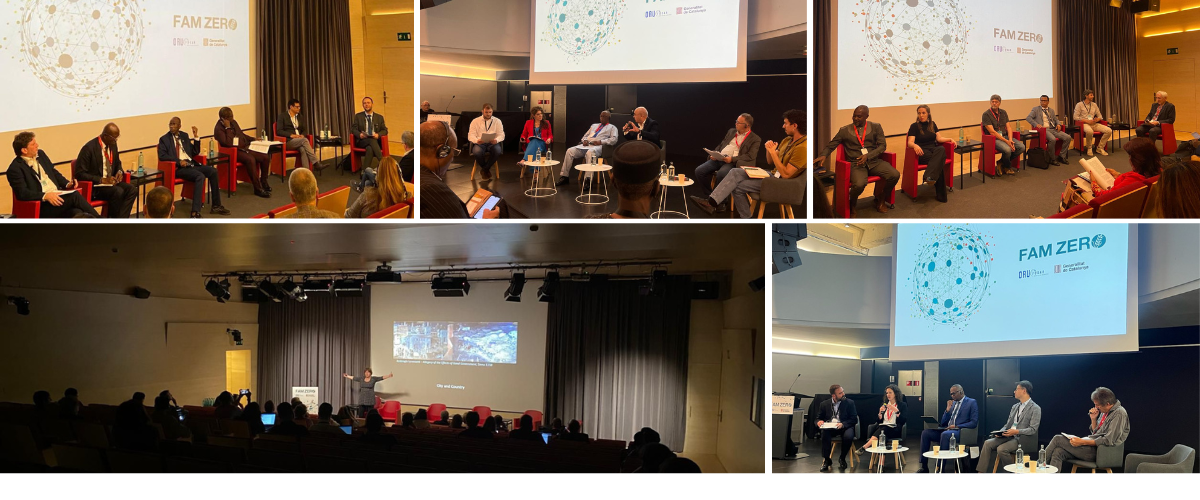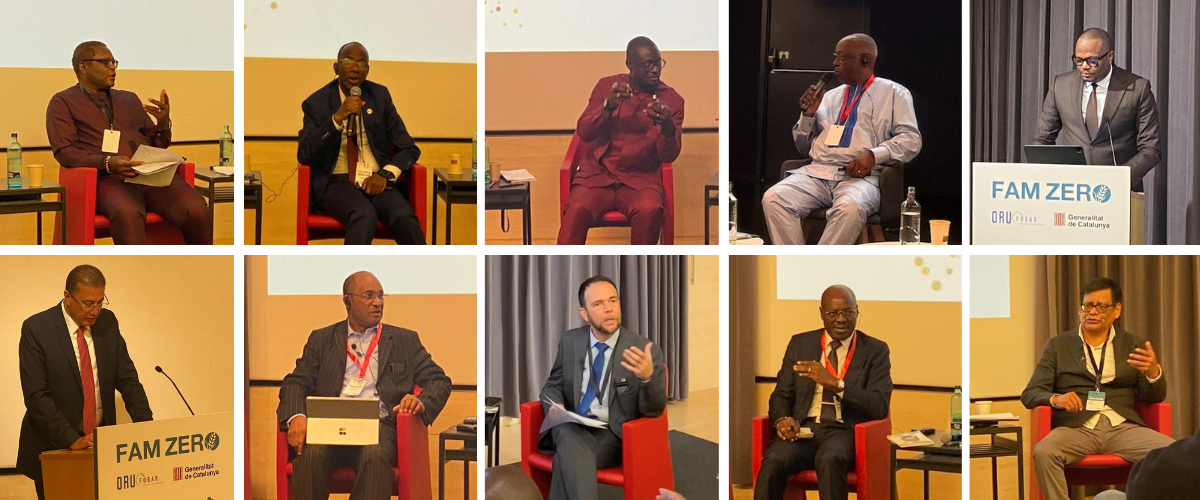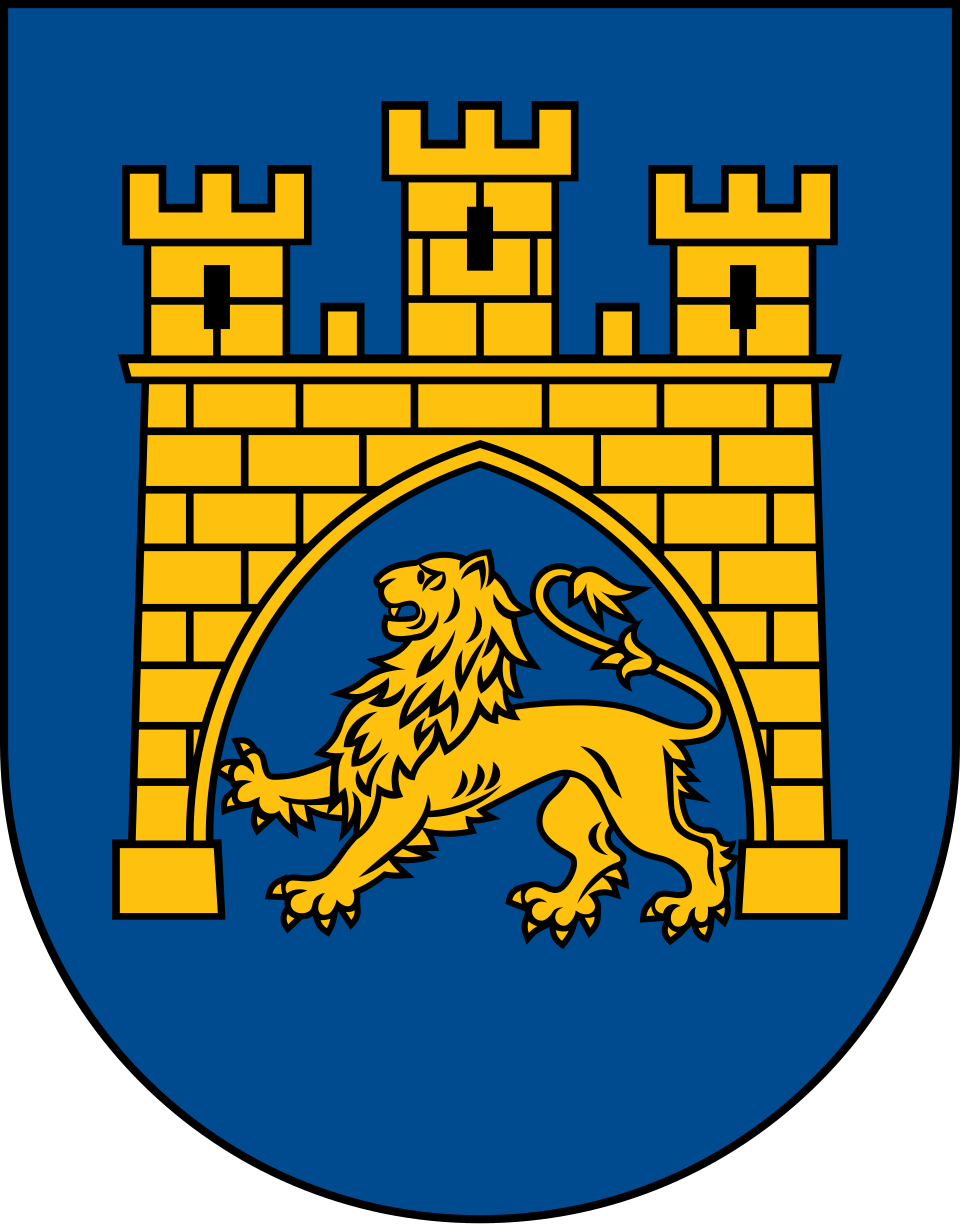Agricultural vocational training as a key to achieving Zero Hunger

While at the 4th Zero Hunger Summit of Regions held in Temuco, Araucanía, Chile, the main theme was the fight against food waste, at the 5th Summit in Barcelona the main focus of attention was the demand for better agricultural vocational training, especially by the African regional leaders present at the Summit.
Already at the opening, ORU Fogar's President, Rachid el Abdi, pointed out the issue. "If the countries of the North - he said - want to help the countries of the South, please do not send us tons of food, a practice that harms local agriculture. If they want to help, support the strengthening, creation, promotion and financing of agricultural vocational training schools". The president of the Moroccan Regional Council of Rabat, Salé Kénitra, was also very clear on this point: "We don't need to have big debates on cooperation. They should simply listen to us. We Africans know what we are talking about when we say that the key is agricultural vocational training". He pointed out that a policy along these lines would help to curb legal and illegal immigration from Africa to Europe.
At the closing, the vice-president of ORU Fogar, Ahmed Youssouph Bengelloune reaffirmed the demand. The key to food sovereignty, according to the president of the Association of Departments of Senegal, is to have a good agricultural vocational training in each region. He therefore asked for help from international cooperation, with a special request for decentralized cooperation. The cooperation of the European regions,” he said, ‘ must help to strengthen the regions of the South’.
The “Catalunya Manifesto” that came out of the summit fully assumes this approach and rightly speaks of “boosting cooperation to promote agricultural vocational training”. And it reaffirms: “Collaboration between governments and other relevant actors can facilitate the development of training and education programs adapted to regional needs through the exchange of good practices and knowledge, or the creation of networks of experts”.
The importance of technology
The Manifesto also calls for investment in research, innovation and technology transfer to improve agricultural productivity and sustainability. Speakers from the different areas of the Summit spoke on the subject.
The chef from Côte d'Ivoure, Charli Koffi, was very clear in pointing out that African agriculture needed technological training. He was in favor of investing in technology and also of retaining industrial food transformation processes close to the place of production. Many of the African governors and regional presidents underlined this deficit.
President Mahamadou Dewa, from Adamaoua, Cameroon, spoke of the potential of his region, a fertile land with an abundance of water. He stated, however, that the lack of mechanization and a very limited use of technology hindered production. He also pointed out the handicap of not having adequate storage infrastructure, and spoke of the need for more drought and disease resistant seeds.
Jules Hilarie Focka, also regional president of Cameroon's West region, said that if all these tools were in place, the regions could more effectively curb the rural exodus and, ultimately, immigration. The president of the Association of Regions of Mali, Abdoulaye Maiga, expressed himself in a very similar vein, emphasizing the need for more resistant seeds.

Daily hunger
All the African presidents insisted on the need for their regions to have sufficient resources, beyond their own competencies. Abdoulay Maiga, who is also president of Mopti, Mali, explained that all regions of the Sahel, regardless of the country, experience similar food situations. “In Mali, the regions participate in a national committee, but each one must find solutions at its own level”. He said that they experience the problem of hunger on a daily basis. It must be taken into account,” he said "that in Mali there are four million people who have difficulty in feeding themselves".
In a very similar vein, the President of Adam Kolia Traoré of the d'Iffou region in Côte d'Ivoire called for competencies and resources because “it is we, the regions, who are close to those who suffer from hunger, they are our citizens”.
The Chairman of the Agriculture Committee of the Kenyan Council of Governors, the Governor of Bungoma, Kenneth Lusaka, referred to the Maputo Declaration of 2008, a manifesto completely in favor of smallholder agriculture, the defense of food sovereignty and unadulterated food, to state that currently in Kenya there was a commitment to devote 10% of budgets to agriculture, but that, in his opinion, the percentage should be increased to 30%. He defended the need to deconcentrate public resources so that they can reach all the inhabitants through the regions.
The Spanish ambassador to FAO and former chairman of the Committee on Food Security, Gabriel Ferrero, who moderated a round table entitled “Zero Hunger, the role of the regions”, was very graphic when he confessed that “in the Ministry, hunger is a statistic, in your case, African presidents, it is something that is on the other side of the door when you leave your office”.
But it was not only Africa's food problems that were discussed. From Peru, Jesús Quispe, manager of the regional Mancomunidad Regional de los Andes, recounted the epic struggle of the Andean regions to combat child malnutrition and anemia, while pointing out the good results being achieved. In a speech that was widely applauded, Quispe referred to the “Growing up in the Andes” program and affirmed that the objective was to have well-fed and competitive children facing the future. He was convinced that the solution could only come through the regions and decentralization.










































































